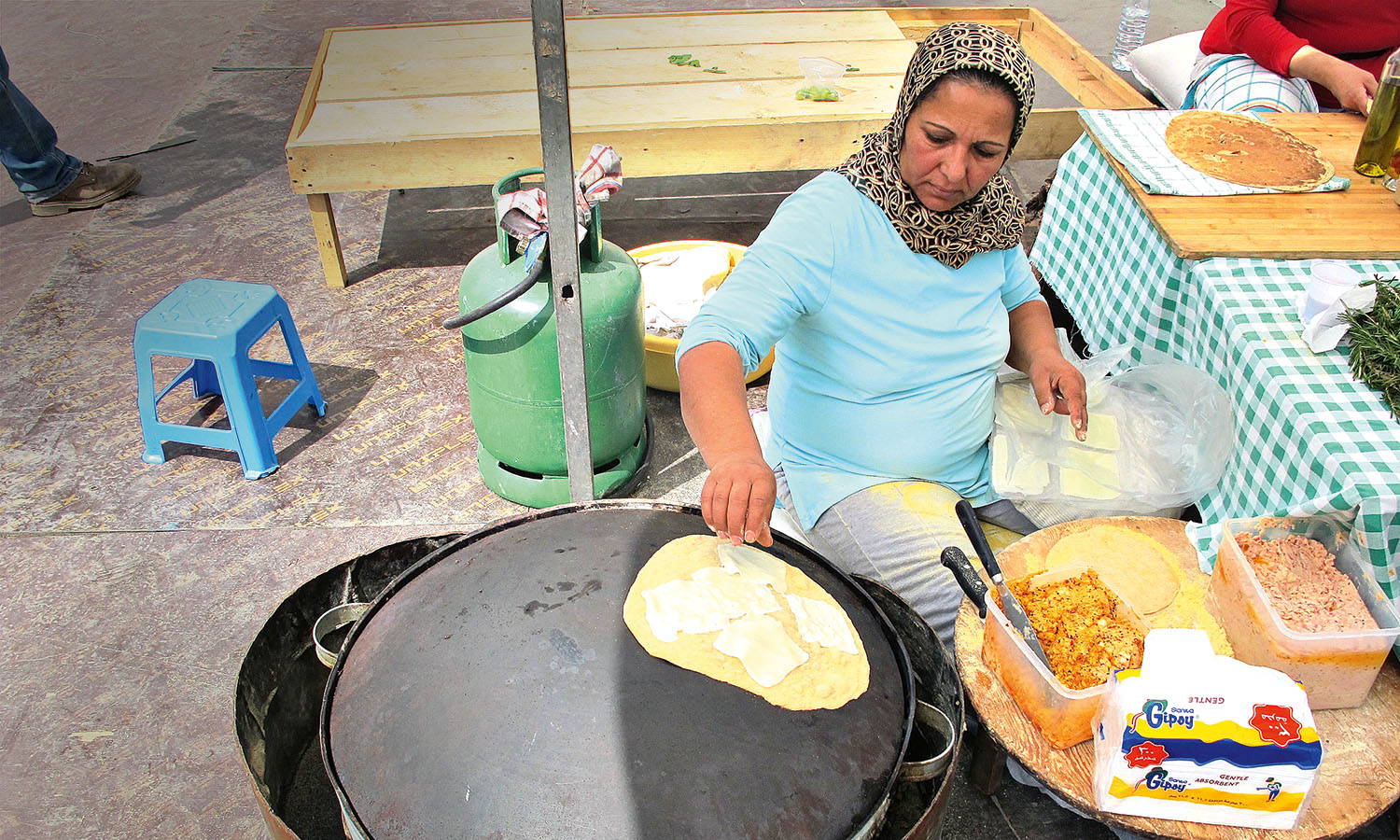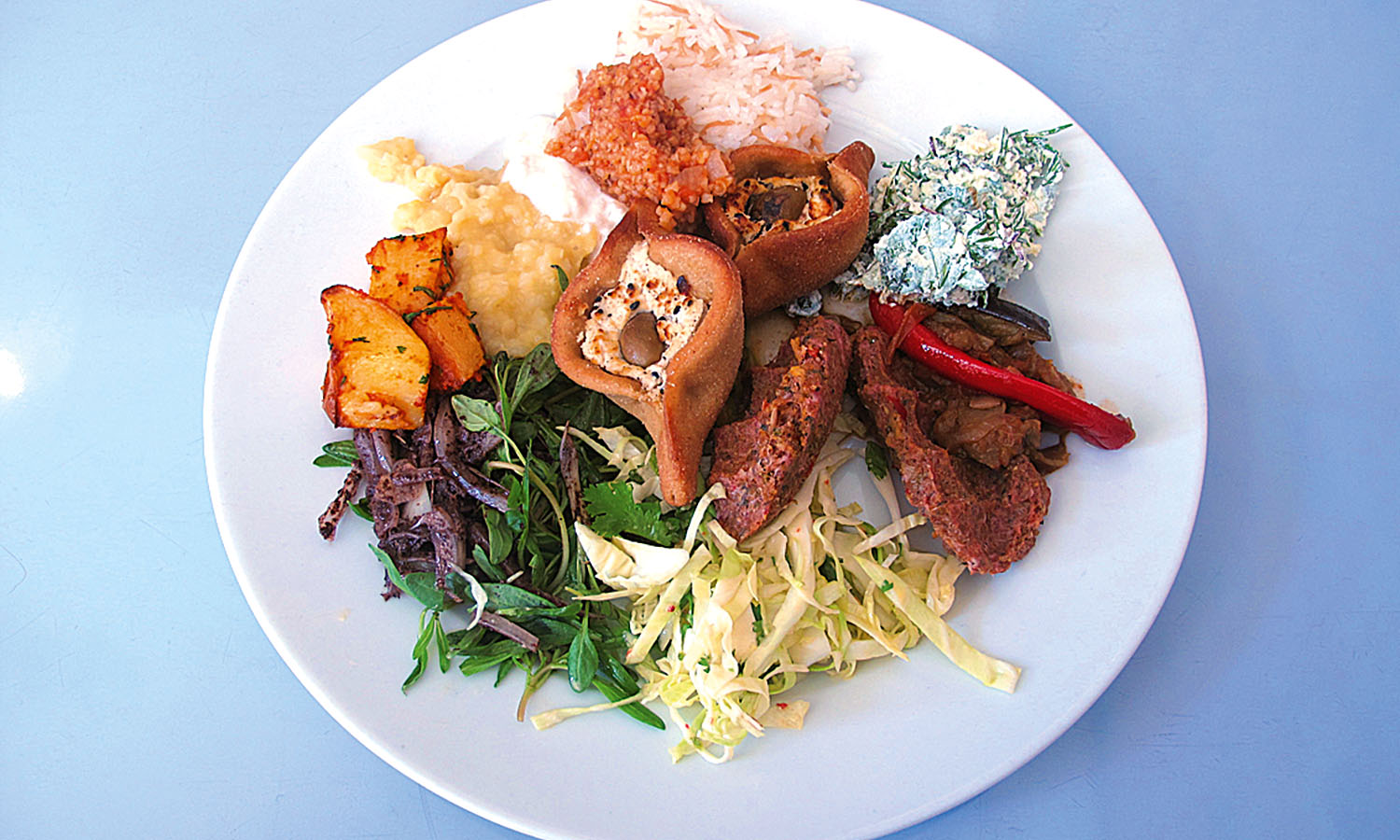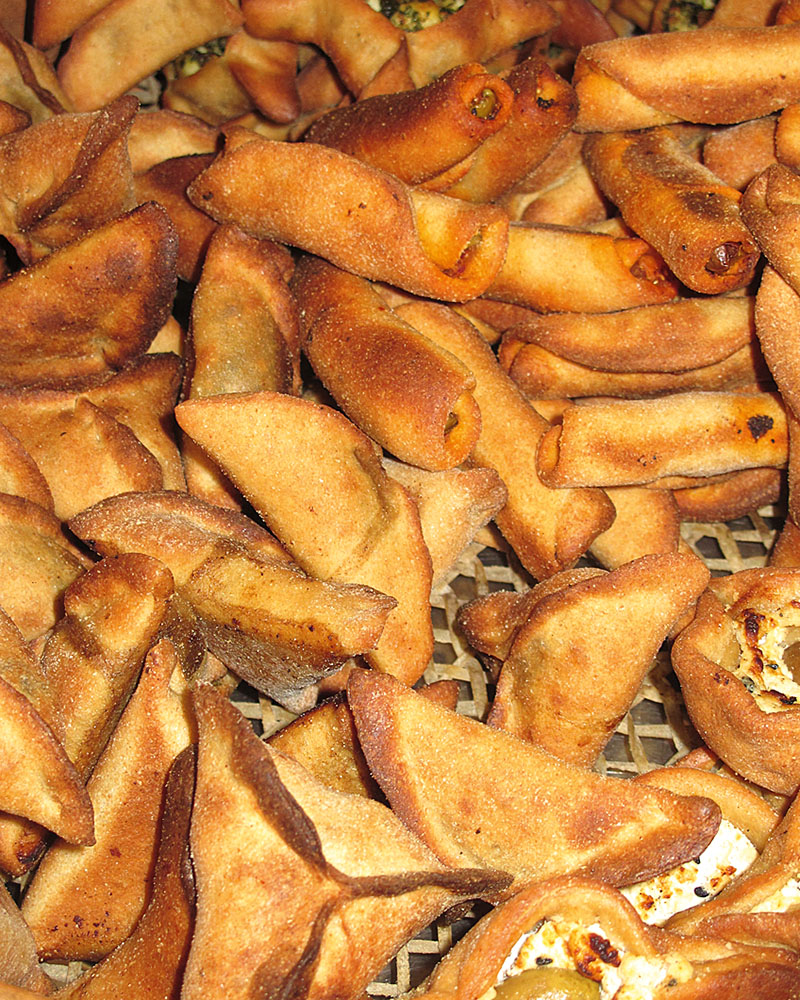Lebanon
Lebanon
Break bread with locals in Beirut
I meet Kamal Mouzawak at Tawlet, on the edge of Beirut’s Bourj Hammoud Armenian district. While gentrification is starting to take root in the city, the eatery sits amid gritty tyre-repair shops and smoky wood-fired bakeries that turn out Lebanon’s iconic flatbread, manoushe.
Mouzawak’s vision to create food that transcends cultural barriers is reinforced in Tawlet’s welcoming interior, which is more trendy Melbourne than troubled Middle East. Tawlet means ‘kitchen table’ in Arabic, and Mouzawak uses the universal pleasure of eating to bring people together, irrespective of their cultural, political or ethnic backgrounds.
“It’s not just the food that’s important,” he explains. “But it’s the getting together and the sharing of this food that’s important for the future of the country.”
Every weekday a different chef from across Lebanon prepares a buffet lunch, drawing on their own history, traditions and hometown flavours. Each of Tawlet’s 30 village cooks, shepherds or traditional farmers travels to Beirut for one day a month, often bringing their meals’ ingredients from their own gardens and small holdings.
Traditional flavours and local dishes, once threatened by conflict and cultural diaspora, are shared and celebrated. And the skilled cooks, whom Mouzawak calls producer chefs, enjoy the exposure.




“Yes, they are peasants and farmers, but they’re doing something just as important as anyone else,” Mouzawak says. “They get all the economic benefits and have direct access to consumers.”
Today’s chef is Oum Ali, a Muslim mother from the South Lebanon village of Majdelzoun, near the Israel border. As her son completes his homework, Ali commandeers the open kitchen to prepare lunch. Tawlet’s onsite cook and waiters drift in and out, communicating in a cosmopolitan patois incorporating Arabic, French and even the occasional English word.
Her hands produce perfectly compact torpedoes of frakeh, spicy raw lamb blended with burghul wheat and spices, including cinnamon, cumin and marjoram. Fatayer pastries stuffed with sheep’s cheese and olives form mini-mountains of golden baked goodness, and abundant salads are studded with mint, thyme and a zingy sprinkling of sumac.
Laban emmo, a succulent dish of lamb in yoghurt sauce, is prepared, and young wheat is roasted and grilled with chicken for a robust bowl of frikeh djeij. It’s all incredibly authentic, packed with flavour and light years from the identikit shawarma, hummus and baba ghanoush served in most Lebanese restaurants in Australia. A pale ale infused with za’atar – Middle Eastern herbs, including sumac, mint, sage and anise – by Beirut’s 961 craft brewery is a surprising adjunct to some of south Lebanon’s most traditional recipes.
Mouzawak passionately regards Tawlet as much more than a restaurant. “It’s a farmers’ kitchen,” he gently corrects me when we first meet. The eatery follows another remarkable project he established in 2005.
Souk el Tayeb operates under the banner Make Food, Not War, and is Lebanon’s first farmers’ market, held weekly near the ritzy Beirut Souks shopping area in the city’s rapidly re-emerging downtown precinct. Every Saturday morning the market brings the country to town, showcasing about 45 different stallholders from all around Lebanon. Eight years since its beginning, promoting the United Farmers of Lebanon, the Souk el Tayeb is a Beirut institution, even trading through the dark days of the 2006 Lebanon-based conflict between Hezbollah and Israel.
About 90 per cent of Tawlet’s chefs are also regular sellers at the market, where Palestinian, Muslim, Druze and Christian producers showcase their artisan products and traditional foods, side by side in a location that was once the epicentre of civil war.
Dressed in his traditional garb of black baggy trousers, stallholder Hussein Abu Mansour from a Druze village in the Bekaa Valley has zesty fruit pestil and zingy glasses of grape and pomegranate juice. Suzanne Doueihy from the Christian Maronite town of Zgharta, in northern Lebanon, is the country’s acclaimed Queen of Kibbeh, and her baked dish of kibbeh bi labneh layers ground lamb with yoghurt and pine nuts.
Armenian dishes from Beirut’s Sona Tikidjian include lahme bi ajine, a spin on lahmacun or Turkish pizza, while Maurice Habib’s fragrant honey is from Lebanon’s famed cedar forests.
I also catch up again with Oum Ali from my lunch at Tawlet a few days earlier. She’s a regular at Souk el Tayeb, and her ongoing appearance at the market enables her to put her family through school.
Ali gives me a shy smile as she sits at her saj, a convex-shaped griddle. She scatters a robust portion of chilli-laced labneh cheese onto the unleavened manoushe wrap she’s just prepared, folds it gently, and carefully presents my order wrapped in newspaper. Along with an organic espresso from an adjacent stall, it makes for a perfect brunch in a surprising city.
Fatayer are small savoury pies and can be made in different shapes and sizes and with different fillings. This recipe uses spinach seasoned with lemon and sumac, and is known as fatayer bi sbenegh. They’re normally served as part of a mezze selection with other traditional Lebanese small plates.
INGREDIENTS
500g flour (white flour or a mix of half white and half wholewheat)
1 tsp yeast
1kg spinach, finely chopped
1 tomato, finely diced
2 tbs sumac
1 tsp lemon juice
2 onions, finely chopped
METHOD
Knead the flour with enough water to form a dough. Dissolve 1 tablespoon salt and the yeast in tepid water, and add to the dough. Roll the dough into a ball, place it in a bowl, cover with a tea towel and leave to rest for one hour.
To prepare the filling, combine the spinach and tomato. Combine the sumac and lemon juice with the onions then add to the spinach and tomato. Season to taste with salt and pepper.
Preheat the oven to 210ºC.
Roll the dough thinly and cut in circles around 10 centimetres in diameter. Check the filling to make sure it isn’t watery (you can squeeze out any excess moisture with your hands). Place a tablespoon of the filling in the centre of each circle of dough. Fold the dough in from three edges to form a triangle, and pinch to seal. Put each fatayer on a lined baking tray and cook in the oven until golden. Leave to cool and serve cold.
This recipe is courtesy of Kamal Mouzawak, founder of Souk el Tayeb and Tawlet.
soukeltayeb.com
tawlet.com
 (
(


